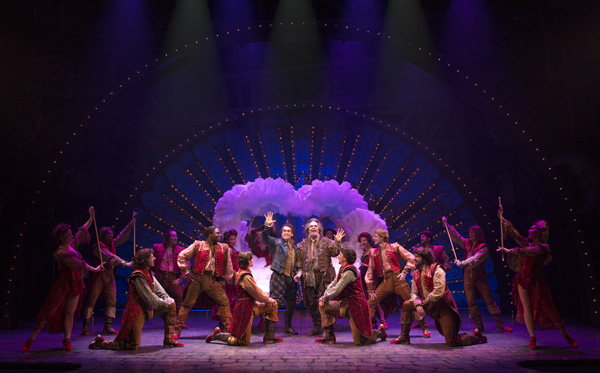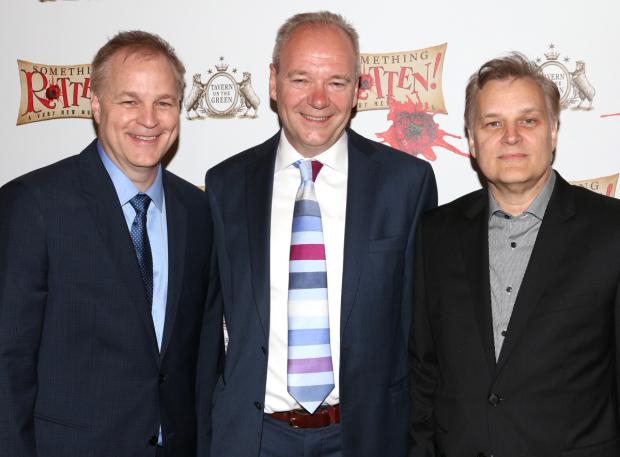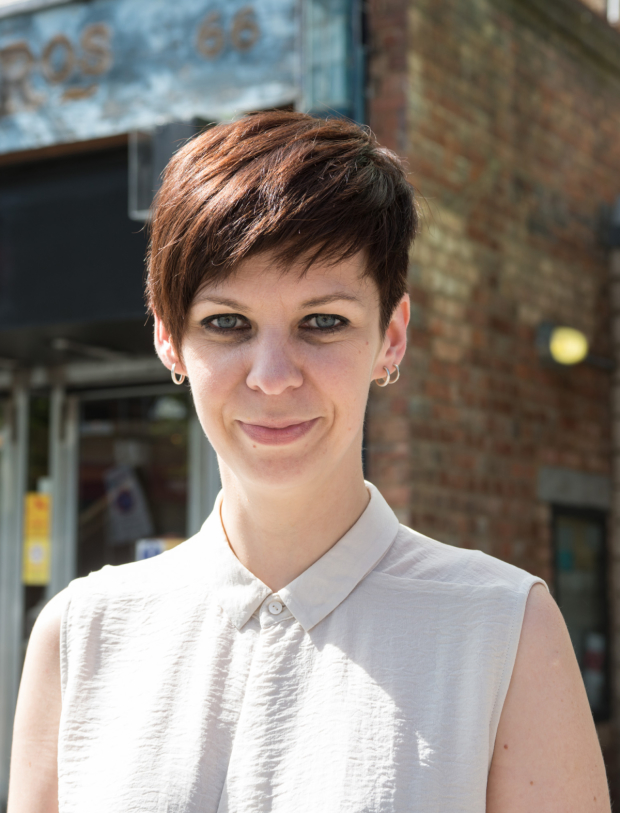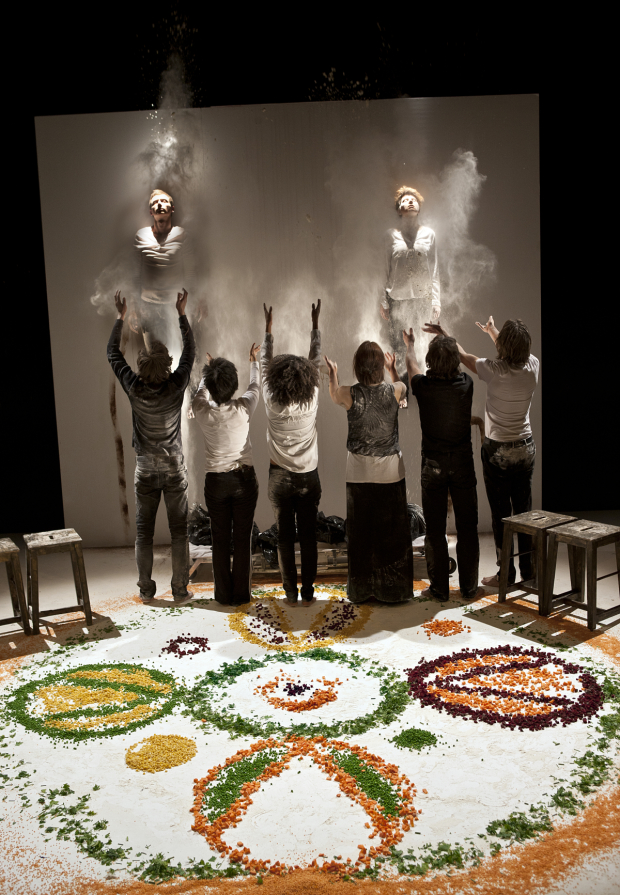The Rise of the Telerehearsal: You No Longer Need to Be in the Same Room to Create Theater

(© Joan Marcus)
The three Tony-nominated authors of Something Rotten! live in different time zones. Book writer and composer Karey Kirkpatrick lives in L.A. His brother, composer Wayne Kirkpatrick, resides in Nashville. Their collaborator, book writer John O'Farrell, lives in London. How, then, were the three able to pen a Broadway musical currently up for 10 Tonys? According to them, much of the show was written via the Internet.
Remote collaboration is not unprecedented in the theater: W.S. Gilbert and Arthur Sullivan (The Pirates of Penzance, The Mikado) conducted the bulk of their writing separately. Gilbert would complete a libretto and send it off to Sullivan to set to music. They never had to be in the same room until the later stages of editing and rehearsal. This impersonal process almost certainly prolonged the partnership of two men who grew to despise each other.
While the gentlemen of Something Rotten! seem to enjoy a far more congenial relationship than that of Gilbert and Sullivan, their separate careers outside of theater keep them geographically divided for most of the year. Instead of corresponding through mail (as Gilbert and Sullivan often did), the three have the advantage of living in the 21st century: They conference via Skype.

(© David Gordon)
"We've had quite a few Skype calls where it's evening for me, morning for Karey, and after lunch for Wayne," O'Farrell shares, wryly adding, "No matter the time of day, we always seem to be tired." Skype has played a huge part in their writing, which became nonstop at one point.
"John and I had a regular Skype meeting during the intense phase of bookwriting: three-thirty p.m. in London, seven-thirty a.m. in L.A.," says Karey Kitckpatrick. "When you're working with someone in London, you can almost have a twenty-four-hour writing cycle. I hand it off to John and he writes for the day and then he hands it off to me at the end of his day."

(© Jane Hobson)
The use of video conferencing and e-mail may have significantly increased productivity for jokes and book scenes, but when it comes to songwriting the Kirkpatricks opted for the old-fashioned way. "We tried using Skype for writing songs, but we found that you need to be in the same room," asserts Wayne Kirkpatrick. "Karey would fly to Nashville or I would go to L.A. and we'd spend intense all-day sessions composing. It could last a week, sometimes two." Obviously, modern air travel is something that was also unavailable to Gilbert and Sullivan: It took them 10 days on the SS Bothnia to journey from Liverpool to New York for the 1879 world premiere of The Pirates of Penzance.
If you're thinking this globalized style of theatrical collaboration is unique to Broadway artists like the Something Rotten! team, think again. The underground troupe Belarus Free Theatre has taken it to the next level with the telerehearsal: a rehearsal conducted with the director in one country and the actors in another. This is very much out of necessity since the troupe is prohibited in its home country by the dictatorial government of Alexander Lukashenko. Since 2011, the theater's three cofounders (Natalia Kaliada, her husband Nicolai Khalezin, and director Vladimir Shcherban) have lived in exile in London, facing long prison sentences if they return to Belarus. Thanks to Internet technology, they're still able to direct the company and its school for young artists.

(© Simon Annand)
"We have a twice-a-year residency in Falmouth [England] and we spent the last three weeks with our students from Belarus," Kaliada explains, adding, "We knew them for a year through Skype, but we had never met face-to-face." The three directors in London rehearse with the actors in Minsk almost entirely via Skype, a thorny task made even more challenging by frequent technical difficulties.
"It's exhausting and sometimes the Internet is a disaster," Kaliada admits. "Connections in Belarus are very bad. When you manage to get a good connection, it's very expensive. We pay around five hundred euros a month for the type of Internet we need for these video connections." Even then, stable video and audio are not always assured.
The actors have a running joke about this. "When Vladimir or Nicolai direct a show, there are times when they're not happy with the performance they're seeing. They'll be giving direction and the actors will respond, 'We don't hear you…very bad connection.' I always wonder, is it really a bad connection or are they just pretending?" Kaliada is sanguine about the necessity of these practical jokes, insisting, "It's part of our way to exist: to continue to laugh and make jokes out of that hell."
Like the creators of Something Rotten!, the members of the Belarus Free Theatre readily admit that this kind of electronic collaboration is not their ideal, but a useful alternative when an in-person meeting is impossible. For an art form like theater that relies so much on the intangible magic of the atmosphere in the room, live rehearsal will probably never go out of style. But the fact that artists now have more options and the ability to create work with people on the other side of the planet bodes well for the future of the stage.










